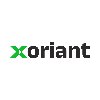Filter interviews by
Excel Software Solutions Financial Analyst Interview Questions and Answers
Be the first one to contribute and help others!
Interview questions from similar companies

(2 Questions)
- Q1. What is Planning?
- Ans.
Planning is the process of setting goals, determining actions to achieve those goals, and allocating resources effectively.
Setting specific, measurable, achievable, relevant, and time-bound (SMART) goals
Creating a detailed plan of action to achieve the goals
Allocating resources such as time, money, and manpower efficiently
Monitoring progress and making adjustments as needed
Examples: Financial planning for a company's b...
- Q2. What to build financial model?
- Ans.
A financial model is built to forecast future financial performance of a company or project.
Identify the purpose of the financial model (e.g. budgeting, valuation, forecasting)
Gather historical financial data and relevant assumptions
Create income statement, balance sheet, and cash flow statement projections
Perform sensitivity analysis to assess the impact of different variables
Validate the model by comparing actual res
(2 Questions)
- Q1. What is depreciation?
- Ans.
Depreciation is the allocation of the cost of a tangible asset over its useful life.
Depreciation is a non-cash expense that reduces the value of an asset over time.
It reflects the wear and tear, obsolescence, or decrease in value of an asset.
Common methods of calculating depreciation include straight-line, double declining balance, and units of production.
Example: A company purchases a machine for $10,000 with a useful...
- Q2. What is the concept of budgeting?
- Ans.
Budgeting is the process of creating a plan to manage income and expenses over a specific period of time.
Budgeting involves setting financial goals and creating a detailed plan to achieve them.
It helps in tracking income, expenses, and savings to ensure financial stability.
Budgeting can be done on a personal level, for businesses, or for specific projects.
Examples of budgeting tools include spreadsheets, budgeting apps

(2 Questions)
- Q1. Past experience
- Q2. Technical knowledge

(1 Question)
- Q1. Tell me about yourself


(2 Questions)
- Q1. Tell me about yourself
- Q2. How can you good fit for this role?

(1 Question)
- Q1. What is the difference between EV and Equity Value
- Ans.
EV includes both debt and equity while Equity Value only includes equity.
EV = Equity Value + Debt - Cash
Equity Value = Market Capitalization + Preferred Stock + Minority Interest - Cash
EV is used to determine the total value of a company while Equity Value only represents the value of the shareholders' equity
EV is often used in M&A transactions while Equity Value is used to determine a company's stock price
Interview Preparation Tips
Excel - navigating data models etc.

I applied via Company Website and was interviewed in Aug 2021. There were 2 interview rounds.
(4 Questions)
- Q1. Tell me about yourself.
- Q2. About financial modelling and valuation
- Q3. Typing speed and ms excel
- Q4. You are comfortable any shifts
(2 Questions)
- Q1. What are your strengths and weaknesses?
- Q2. About ms Excel What do you know vlookup hlookup shorting filter modelling
Interview Preparation Tips

I applied via Naukri.com and was interviewed before Oct 2020. There was 1 interview round.
Interview Questionnaire
1 Question
- Q1. Reference data management, identifiers etc
Interview Preparation Tips

I applied via Naukri.com and was interviewed before May 2023. There were 2 interview rounds.
Financial assigment tesging done
(3 Questions)
- Q1. Technical round
- Q2. Technical round tesging dome
- Q3. Techical round for self testing
Interview Preparation Tips
- Oracle 11G
- SAP
- Excel

I applied via Company Website and was interviewed in Sep 2022. There were 2 interview rounds.

(2 Questions)
- Q1. 1. General Question ( Name and all that) 2. Basic Maths ( square root of 2 3 4 5)
- Q2. 3. What is OTC and the process of OTC? 4. Why we hire you and what is your in the next 5 years
- Ans.
OTC stands for Over-The-Counter. It refers to the trading of financial instruments directly between two parties without the involvement of an exchange.
OTC trading involves direct communication between the buyer and seller, without the need for a centralized exchange.
OTC markets are less regulated than exchange-traded markets.
OTC trading is common in the foreign exchange, bond, and derivatives markets.
The process of OTC...
Interview Preparation Tips

I applied via Referral and was interviewed before Oct 2019. There were 3 interview rounds.
Interview Questionnaire
4 Questions
- Q1. Explain about your work experience
- Q2. Journal entry of prepaid and outstanding expense
- Ans.
Prepaid expenses are assets paid in advance while outstanding expenses are liabilities yet to be paid.
Prepaid expenses are recorded as assets on the balance sheet until they are used or expire.
Journal entry for prepaid expense: Debit Prepaid Expense, Credit Cash/Bank.
Outstanding expenses are recorded as liabilities on the balance sheet until they are paid.
Journal entry for outstanding expense: Debit Expense, Credit Acc...
- Q3. Why do you want to left your current job
- Q4. Strength and weakness
Interview Preparation Tips
Tell us how to improve this page.
Interview Questions for Popular Designations
- Financial Accountant Interview Questions
- Financial Associate Interview Questions
- Senior Financial Analyst Interview Questions
- Financial Controller Interview Questions
- Financial Consultant Interview Questions
- Financial Planning Analyst Interview Questions
- Cheif Financial Officer Interview Questions
- Junior Financial Analyst Interview Questions
- Show more
Financial Analyst Interview Questions from Similar Companies

Teleperformance

FIS

Nagarro

Optum
- Home >
- Interviews >
- Excel Software Solutions Interview Questions >
- Excel Software Solutions Financial Analyst Interview Questions







